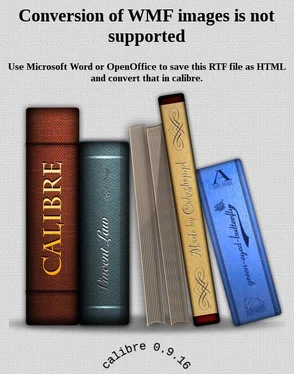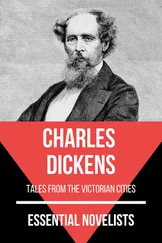Charles Dickens - Speeches - Literary & Social
Здесь есть возможность читать онлайн «Charles Dickens - Speeches - Literary & Social» весь текст электронной книги совершенно бесплатно (целиком полную версию без сокращений). В некоторых случаях можно слушать аудио, скачать через торрент в формате fb2 и присутствует краткое содержание. Жанр: Классическая проза, на английском языке. Описание произведения, (предисловие) а так же отзывы посетителей доступны на портале библиотеки ЛибКат.
- Название:Speeches: Literary & Social
- Автор:
- Жанр:
- Год:неизвестен
- ISBN:нет данных
- Рейтинг книги:5 / 5. Голосов: 1
-
Избранное:Добавить в избранное
- Отзывы:
-
Ваша оценка:
- 100
- 1
- 2
- 3
- 4
- 5
Speeches: Literary & Social: краткое содержание, описание и аннотация
Предлагаем к чтению аннотацию, описание, краткое содержание или предисловие (зависит от того, что написал сам автор книги «Speeches: Literary & Social»). Если вы не нашли необходимую информацию о книге — напишите в комментариях, мы постараемся отыскать её.
Speeches: Literary & Social — читать онлайн бесплатно полную книгу (весь текст) целиком
Ниже представлен текст книги, разбитый по страницам. Система сохранения места последней прочитанной страницы, позволяет с удобством читать онлайн бесплатно книгу «Speeches: Literary & Social», без необходимости каждый раз заново искать на чём Вы остановились. Поставьте закладку, и сможете в любой момент перейти на страницу, на которой закончили чтение.
Интервал:
Закладка:
SPEECH LIV
Sanitary Reform. London, May 10, 1851
The members and friends of the Metropolitan Sanitary Association dined together on the above evening at Gore House, Kensington. The Earl of Carlisle occupied the chair. Mr. Charles Dickens was present, and in proposing "The Board of Health," made the following speech:-
THERE are very few words for me to say upon the needfulness of sanitary reform, or the consequent usefulness of the Board of Health. That no man can estimate the amount of mischief grown in dirt, - that no man can say the evil stops here or stops there, either in its moral or physical effects, or can deny that it begins in the cradle and is not at rest in the miserable grave, is as certain as it is that the air from Gin Lane will be carried by an easterly wind into Mayfair, or that the furious pestilence raging in St. Giles's no mortal list of lady patronesses can keep out of Almack's. Fifteen years ago some of the valuable reports of Mr. Chadwick and Dr. Southwood Smith, strengthening and much enlarging my knowledge, made me earnest in this cause in my own sphere; and I can honestly declare that the use I have since that time made of my eyes and nose have only strengthened the conviction that certain sanitary reforms must precede all other social remedies, and that neither education nor religion can do anything useful until the way has been paved for their ministrations by cleanliness and decency.
I do not want authority for this opinion: you have heard the speech of the right reverend prelate this evening - a speech which no sanitary reformer can have heard without emotion. Of what avail is it to send missionaries to the miserable man condemned to work in a foetid court, with every sense bestowed upon him for his health and happiness turned into a torment, with every month of his life adding to the heap of evils under which he is condemned to exist? What human sympathy within him is that instructor to address? what natural old chord within him is he to touch? Is it the remembrance of his children? - a memory of destitution, of sickness, of fever, and of scrofula? Is it his hopes, his latent hopes of immortality? He is so surrounded by and embedded in material filth, that his soul cannot rise to the contemplation of the great truths of religion. Or if the case is that of a miserable child bred and nurtured in some noisome, loathsome place, and tempted, in these better days, into the ragged school, what can a few hours' teaching effect against the ever-renewed lesson of a whole existence? But give them a glimpse of heaven through a little of its light and air; give them water; help them to be clean; lighten that heavy atmosphere in which their spirits flag and in which they become the callous things they are; take the body of the dead relative from the close room in which the living live with it, and where death, being familiar, loses its awe; and then they will be brought willingly to hear of Him whose thoughts were so much with the poor, and who had compassion for all human suffering.
The toast which I have to propose, The Board of Health, is entitled to all the honour which can be conferred upon it. We have very near us, in Kensington, a transparent illustration that no very great thing can ever be accomplished without an immense amount of abuse being heaped upon it. In connexion with the Board of Health we are always hearing a very large word which is always pronounced with a very great relish - the word centralization. Now I submit that in the time of the cholera we had a pretty good opportunity of judging between this so called centralization and what I may, I think, call "vestrylisation." I dare say the company present have read the reports of the Cholera Board of Health, and I daresay they have also read reports of certain vestries. I have the honour of belonging to a constituency which elected that amazing body, the Marylebone vestry, and I think that if the company present will look to what was done by the Board of Health at Glasgow, and then contrast those proceedings with the wonderful cleverness with which affairs were managed at the same period by my vestry, there will be very little difficulty in judging between them. My vestry even took upon itself to deny the existence of cholera as a weak invention of the enemy, and that denial had little or no effect in staying the progress of the disease. We can now contrast what centralization is as represented by a few noisy and interested gentlemen, and what centralization is when worked out by a body combining business habits, sound medical and social knowledge, and an earnest sympathy with the sufferings of the working classes.
Another objection to the Board of Health is conveyed in a word not so large as the other, - "Delay." I would suggest, in respect to this, that it would be very unreasonable to complain that a first- rate chronometer didn't go when its master had not wound it up. The Board of Health may be excellently adapted for going and very willing and anxious to go, and yet may not be permitted to go by reason of its lawful master having fallen into a gentle slumber and forgotten to set it a going. One of the speakers this evening has referred to Lord Castlereagh's caution "not to halloo until they were out of the wood." As regards the Board of Trade I would suggest that they ought not to halloo until they are out of the Woods and Forests. In that leafy region the Board of Health suffers all sorts of delays, and this should always be borne in mind. With the toast of the Board of Health I will couple the name of a noble lord (Ashley), of whose earnestness in works of benevolence, no man can doubt, and who has the courage on all occasions to face the cant which is the worst and commonest of all - the cant about the cant of philanthropy.
SPEECH LV
Gardening. London, June 9, 1851
At the anniversary dinner of the Gardeners' Benevolent Institution, held under the presidency of Mr., afterwards Sir Joseph Paxton, Mr. Charles Dickens made the following speech:-
I FEEL an unbounded and delightful interest in all the purposes and associations of gardening. Probably there is no feeling in the human mind stronger than the love of gardening. The prisoner will make a garden in his prison, and cultivate his solitary flower in the chink of a wall. The poor mechanic will string his scarlet bean from one side of his window to the other, and watch it and tend it with unceasing interest. It is a holy duty in foreign countries to decorate the graves of the dead with flowers, and here, too, the resting-places of those who have passed away from us will soon be gardens. From that old time when the Lord walked in the garden in the cool of the evening, down to the day when a Poet- Laureate sang -
"Trust me, Clara Vere de Vere,
From yon blue heaven above us bent
The gardener Adam and his wife
Smile at the claims of long descent,"
at all times and in all ages gardens have been amongst the objects of the greatest interest to mankind. There may be a few, but I believe they are but a few, who take no interest in the products of gardening, except perhaps in "London Pride," or a certain degenerate kind of "Stock," which is apt to grow hereabouts, cultivated by a species of frozen-out gardeners whom no thaw can ever penetrate: except these, the gardeners' art has contributed to the delight of all men in their time. That there ought to be a Benevolent Provident Institution for gardeners is in the fitness of things, and that such an institution ought to flourish and does flourish is still more so.
I have risen to propose to you the health of a gentleman who is a great gardener, and not only a great gardener but a great man - the growth of a fine Saxon root cultivated up with a power of intellect to a plant that is at this time the talk of the civilized world - I allude, of course, to my friend the chairman of the day. I took occasion to say at a public assembly hard-by, a month or two ago, in speaking of that wonderful building Mr. Paxton has designed for the Great Exhibition in Hyde Park, that it ought to have fallen down, but that it refused to do so. We were told that the glass ought to have been all broken, the gutters all choked up, and the building flooded, and that the roof and sides ought to have been blown away; in short that everything ought to have done what everything obstinately persisted in not doing. Earth, air, fire, and water all appear to have conspired together in Mr. Paxton's favour - all have conspired together to one result, which, when the present generation is dust, will be an enduring temple to his honour, and to the energy, the talent, and the resources of Englishmen.
Читать дальшеИнтервал:
Закладка:
Похожие книги на «Speeches: Literary & Social»
Представляем Вашему вниманию похожие книги на «Speeches: Literary & Social» списком для выбора. Мы отобрали схожую по названию и смыслу литературу в надежде предоставить читателям больше вариантов отыскать новые, интересные, ещё непрочитанные произведения.
Обсуждение, отзывы о книге «Speeches: Literary & Social» и просто собственные мнения читателей. Оставьте ваши комментарии, напишите, что Вы думаете о произведении, его смысле или главных героях. Укажите что конкретно понравилось, а что нет, и почему Вы так считаете.












